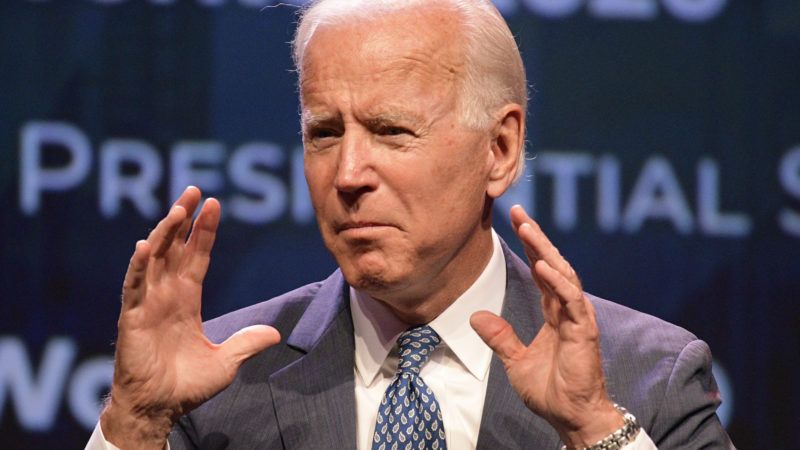If We Judged Joe Biden Under the Title IX Standards He Championed for Accused Student Rapists, He Would Be Guilty
The former vice president pushed Title IX reforms that took a believe-victims approach and harmed due process.

The sexual assault allegation against former Vice President Joe Biden is finally receiving the attention it deserves from the mainstream media. Last Friday, the presumptive Democratic presidential nominee forcefully denied the accusation, saying that "it never happened."
Key to his denial was the fact that the incident allegedly took place 27 years ago and that hard evidence to support former staffer Tara Reade's sexual assault claim has not materialized. Biden supporters have also pointed out that Reade has told several different stories over the years about what allegedly happened.
But, under the standards that Biden himself has championed in college sexual misconduct cases, none of these facts would necessarily be enough for an accused person to avoid sanction. As I argue in a recent op-ed for The Washington Examiner, "If the allegation against Biden were being decided by the kind of adjudication system that he helped enshrine on college campuses, it's quite likely that he would be found guilty."
This should matter a great deal for how we discuss the allegation against Biden. Indeed, how would Biden want this claim to be adjudicated if the accused were someone else is one of the more obvious frameworks for proceeding. The fact that this framework would quite likely produce an outcome in this matter that would dissatisfy many mainstream liberals and Democrats may be a good reason for them to abandon it as a general standard.
Under the system Biden helped foist upon virtually all college campuses in the country, students accused of sexual misconduct are routinely denied the ability to effectively defend themselves. They often do not even receive hearings—Obama-era federal guidance pushed a single-investigator model in which even presenting evidence on one's behalf becomes a tough task. As I note in the Examiner:
Samantha Harris, an attorney specializing in campus disciplinary issues and a senior fellow at the Foundation for Individual Rights in Education, told me, "For years, Biden has been a leading proponent of a system under which students accused of sexual misconduct are presumed guilty and routinely expelled without so much as a hearing or the opportunity to confront their accuser."
For one thing, the Obama-era standards essentially obligated universities to investigate all sexual misconduct complaints no matter how long ago they had occurred. Many are adjudicated months or even years after the incident in question. According to one survey by an insurance group, the average period of delay is 11 months.
For another, universities have been encouraged to adopt a victim-centered approach to adjudication. This means that inconsistencies in a victim's story are not considered disqualifying: On the contrary, they are to be anticipated. The University of Texas at Austin's sexual assault investigation training materials, for instance, stress that "trauma victims often omit, exaggerate, or make up information when trying to make sense of what happened to them or to fill gaps in memory."
Even if the accused has solid evidence on his or her side, there is little guarantee that the individual would be afforded a fair hearing. Federal guidance discouraged cross-examination at misconduct hearings, instead recommending a single investigator model of adjudication. Under this model, one university official is appointed to determine the charges, collect statements from both parties, decide which witnesses to interview (if any), and then publish a report that effectively decides the matter.
Read the rest of my op-ed here.